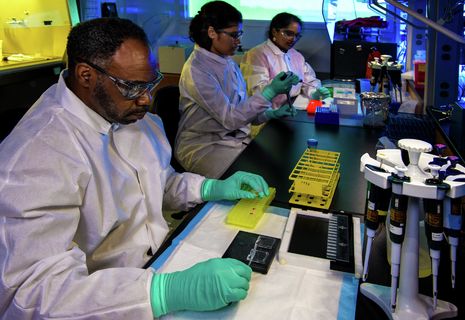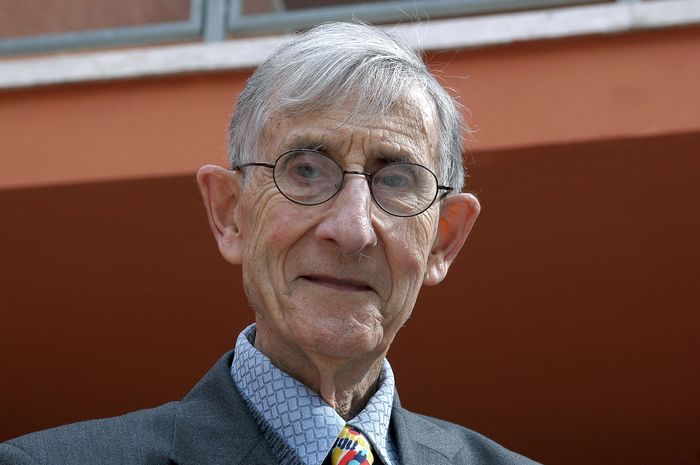Universities fear ‘calamitous’ impact of research funding cuts
The UN also expressed their concerns about the impact of the cuts for developing countries

Following the announcement of significant research funding cuts from UK Research and Innovation (UKRI), Vice-Chancellor Stephen Toope released a joint statement with Oxford University’s Vice-Chancellor Louise Richardson in the Telegraph earlier today (19/03), in which the two Vice-Chancellors call upon the government to maintain its commitment to spending 2.4 per cent of Gross National Product (GNP) on research and development (R&D) by 2027 and to continue supporting publicly funded research initiatives.
The funding cuts, announced last week, have been met with anxiety from Universities and Researchers nationally, as well as concern from the United Nations (UN) about the consequences of these plans for developing countries.
UKRI’s announcement stated that Universities’ budget for international development projects would be almost halved from £245m to £125m. The cuts are the result of a decision by the government to reduce the international aid budget from 0.7 per cent of gross national income to 0.5 per cent.
UKRI has confirmed that the funding cuts impacted a total of 900 projects, with some researchers’ funding being completely cut.
In response, Toope and Richardson cautioned that “the scale, immediacy and impact of the announced and potential cuts to UK research budgets, amounting to over £1 billion, will undermine years of investment in our universities and put our research base at risk, not to mention our international reputation.”
“The Covid-19 pandemic has demonstrated the power of publicly-funded research in tackling the biggest global health crisis of the past century,” the statement begins.
Addressing the government’s original decision, the statement emphasises that its “consequence is a £120 million cut to research programmes, representing 40 to 60 per cent of development-funded research activity, with serious real-world effects. Researchers will have to stop programmes in developing countries aimed at tackling malaria and infectious diseases with pandemic potential, enhancing food security, reducing violence towards children, improving maternal health, and building renewable energy sources. This work does not just benefit the developing world but all of us.
“If UKRI, the Government body responsible for awarding research grants, is left with a shortfall of £1 billion, the consequences for British science and innovation will be nothing short of calamitous.”
The Vice-Chancellors also expressed concerns at Universities UK’s estimation that the cuts could implicate the jobs of 18,000 researchers, adding that: “world-leading research cannot just be turned on and off like a tap. Once our highly trained young researchers leave our universities they will not come back.”
The anxieties expressed in this statement are mirrored in an open letter from academics, which was sent to Rishi Sunak MP and Dominic Raab MP yesterday (18/03), and has amassed over 4,000 signatures (as of 19/03). Among these are 84 researchers at the University of Cambridge.
The letter emphasises that this funding “has allowed the UK to play a major role in tackling these global challenges,” adding that “international cooperation [in research] is vital to the UK Government’s vision for the UK as a global force in research and development, acting as a powerhouse of ideas and solutions.”
The letter also calls for the changes to be reconsidered, stating: “We deplore the short-term view of this research funding, that has created an unprecedented decision to shut down and ‘reprofile’ approved and competitively-funded projects. This is an action from which it will be hard to recover. We call for an immediate reversal of this decision, maintaining this opportunity for the UK to sustain its profile in leading research to tackle global challenges.”
Meanwhile, in a letter sent to colleagues last week, Christopher Smith, responsible for coordinating international research funding at the UKRI, said it was “unavoidable that some grants will be terminated.”
The United Nations has also expressed concern at the funding cuts, as several affected research projects support several developing countries. Among these projects were ones investigating the combating of diseases similar to COVID-19 and Ebola. Subsequently, concerns about potentially leaving the world less prepared for future pandemics have been emphasised. The UN said the cuts “bode ill for developing countries – and particularly least developed countries.”
The UN Department of Economic and Social Affairs added that countries such as Yemen and Sudan “need research and knowledge-sharing to help close the digital divide, strengthen their capacity to respond to risks in an increasingly complex world.”
Sarah Champion, Labour MP and Chair of the International Development Committee, said that the UN’s comments “show the level of concern internationally about the government’s cuts to development aid.”
 News / Judge Business School advisor resigns over Epstein and Andrew links18 February 2026
News / Judge Business School advisor resigns over Epstein and Andrew links18 February 2026 News / Gov grants £36m to Cambridge supercomputer17 February 2026
News / Gov grants £36m to Cambridge supercomputer17 February 2026 News / Hundreds of Cambridge academics demand vote on fate of vet course20 February 2026
News / Hundreds of Cambridge academics demand vote on fate of vet course20 February 2026 News / CUCA members attend Reform rally in London20 February 2026
News / CUCA members attend Reform rally in London20 February 2026 News / Union speakers condemn ‘hateful’ Katie Hopkins speech14 February 2026
News / Union speakers condemn ‘hateful’ Katie Hopkins speech14 February 2026











